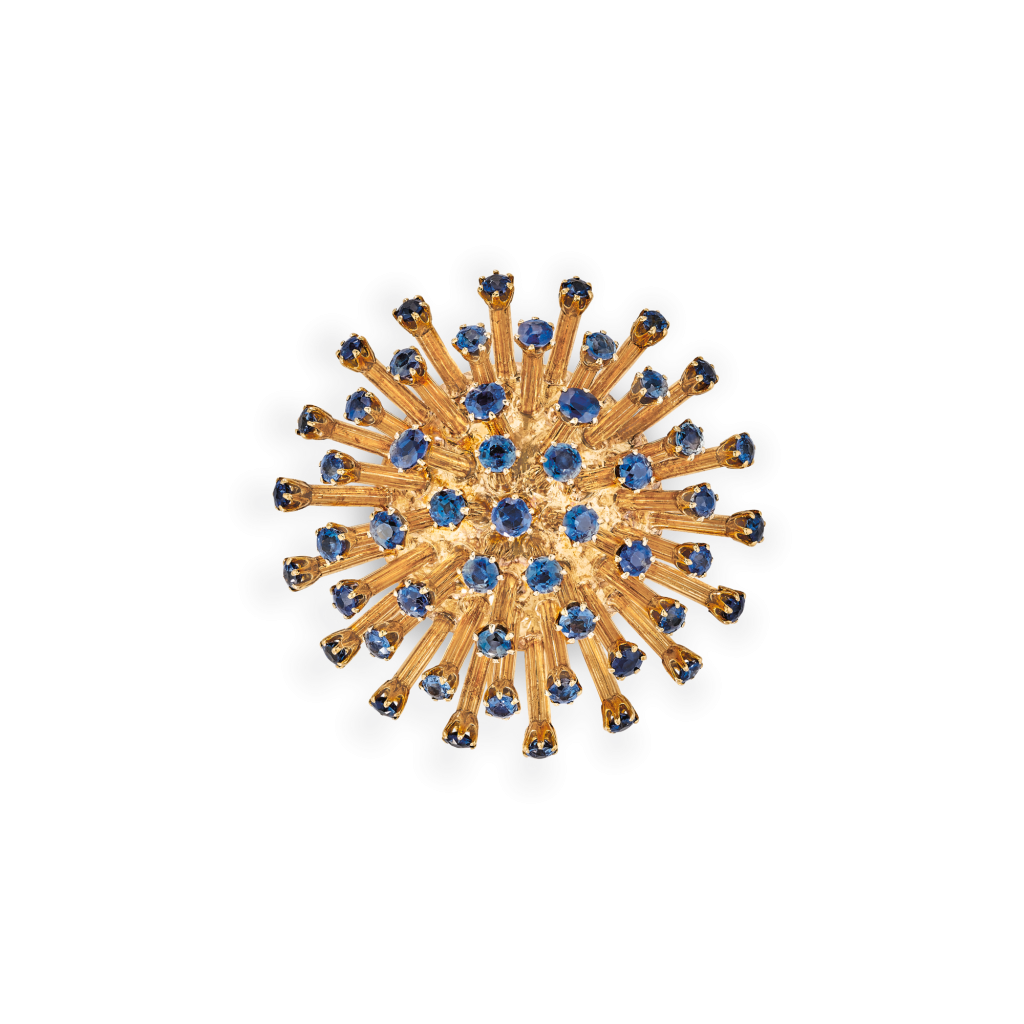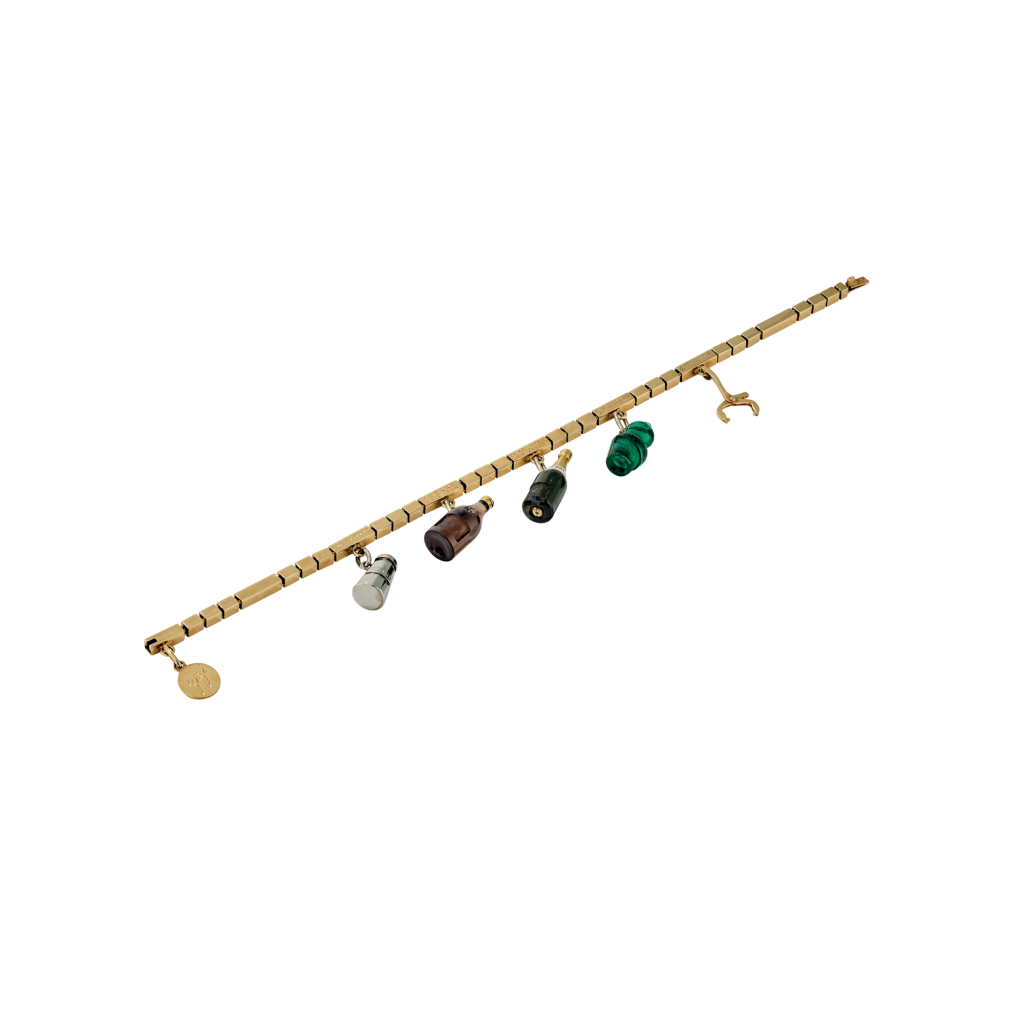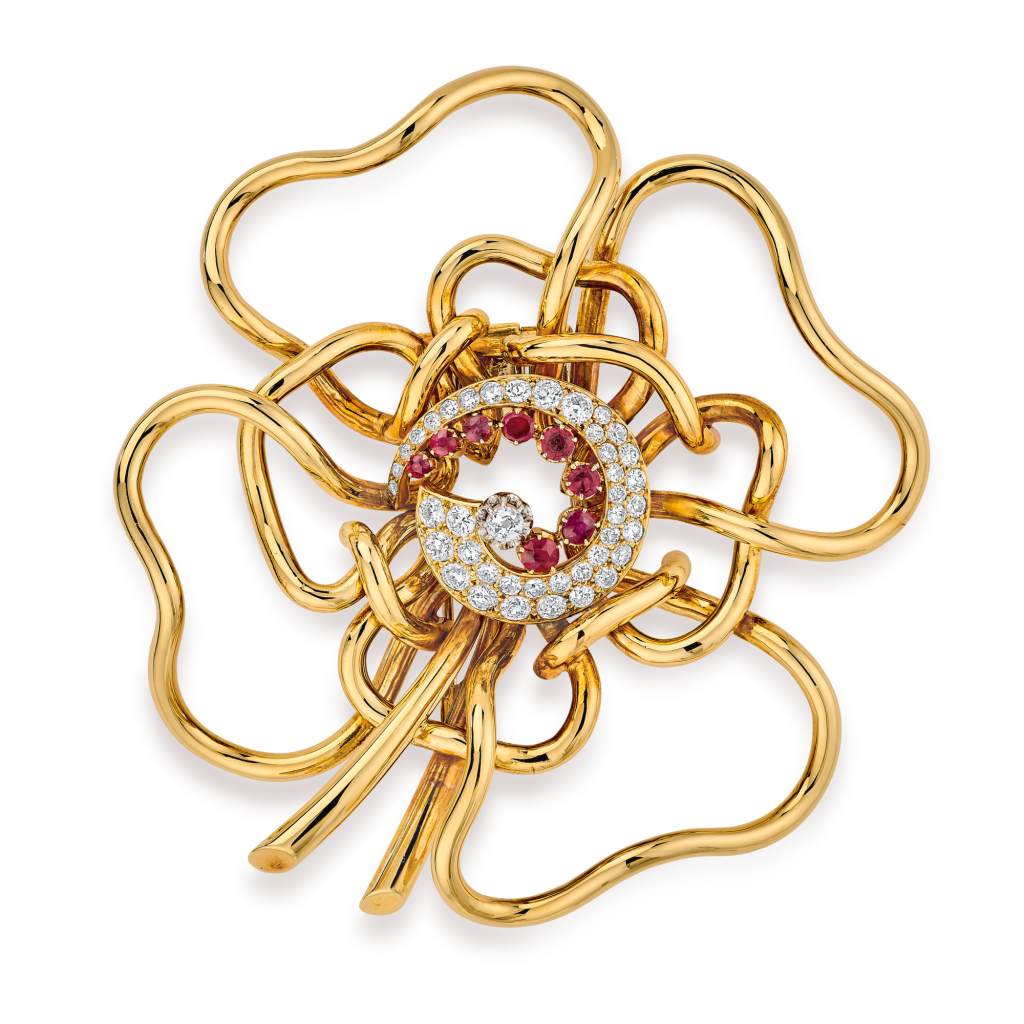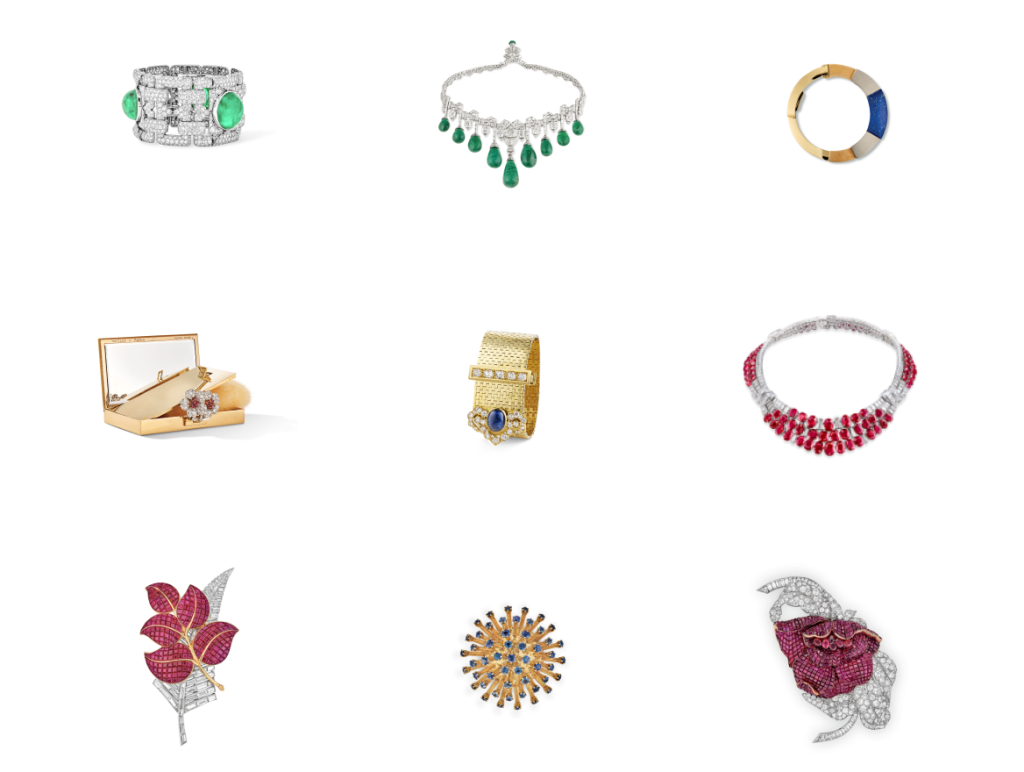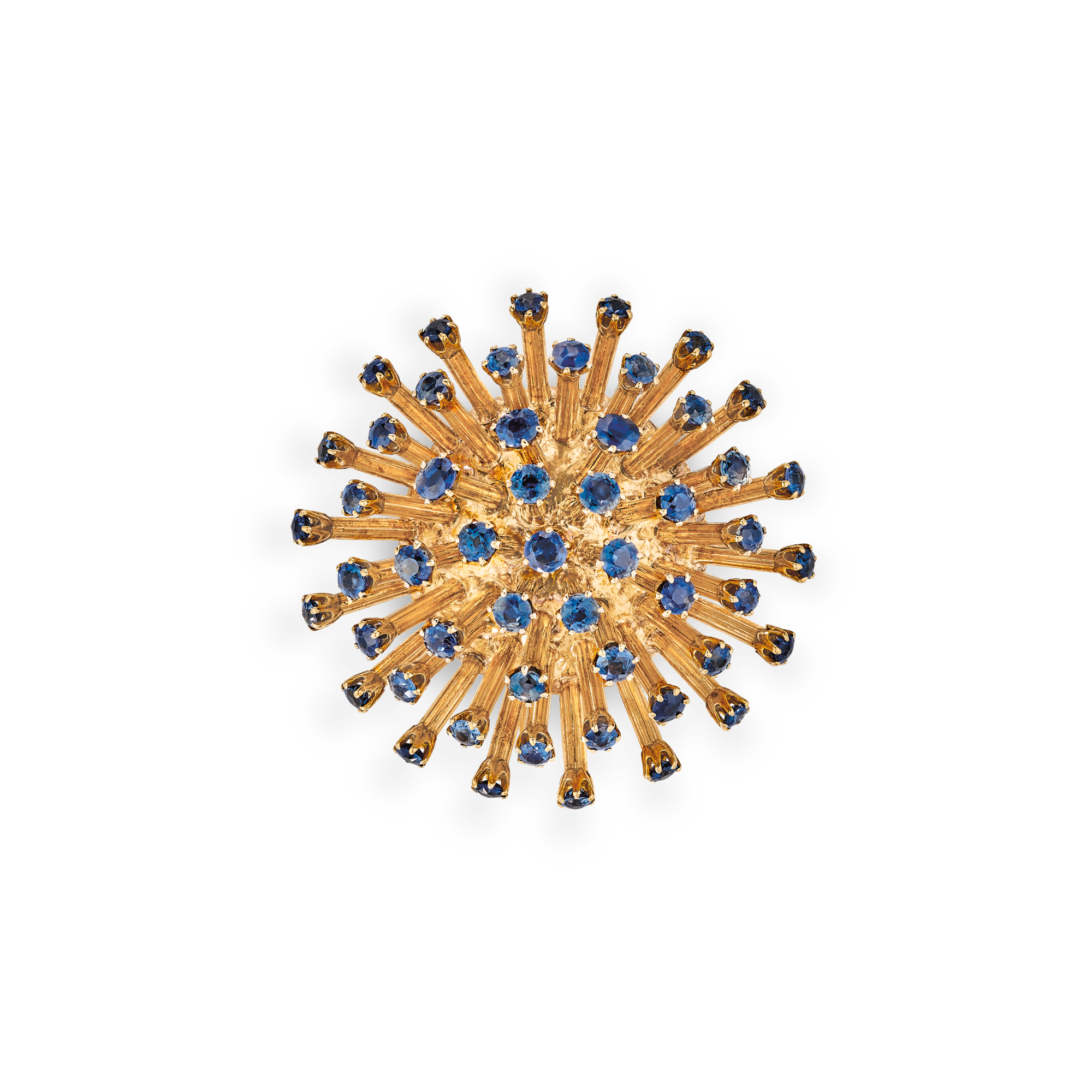
Thistle clip
Creation details
- Creation year 1937
- Usage Clip
- Dimensions 45 mm (diam.)
Notice
The Thistle clip occupies an important place among Van Cleef & Arpels’ creations for the year 1937, for the uniqueness of its form as much as for the number of times it features in the Maison’s archives—proof of its popularity.
The Thistle clip is composed of a polished yellow gold hemisphere from which ribbed prickles made of the same material radiate outwards, terminating in claw-set round rubies. Clips and earrings based on this model were made in yellow gold and diamonds, or osmior and sapphires. In addition to the simplification of form seen in this piece, the flower that it interprets is also compelling, for the thistle is rarely found in the arts in general. And if it is found in the work of Art Nouveau artists, it is because it was a little-used motif in the artistic production of the preceding centuries. It is interesting to find this flower at the very end of the Art Deco movement, which was radically opposed to the sinuous lines of Art Nouveau known as “whiplash.”
The stylization of the floral motif
The powerful stylization of this wildflower evokes the figures composed of geometric volumes and cylinders seen in the paintings of Fernand Léger and Robert Delaunay. This vocabulary of forms drawn from the world of mechanics—tubes, cones, and spheres—echoes the umbels of the Thistle clip reduced to simple gold rods. Abstract painting, which took root in the 1930s, was feted at the Exposition internationale des arts et des techniques in Paris in 1937.
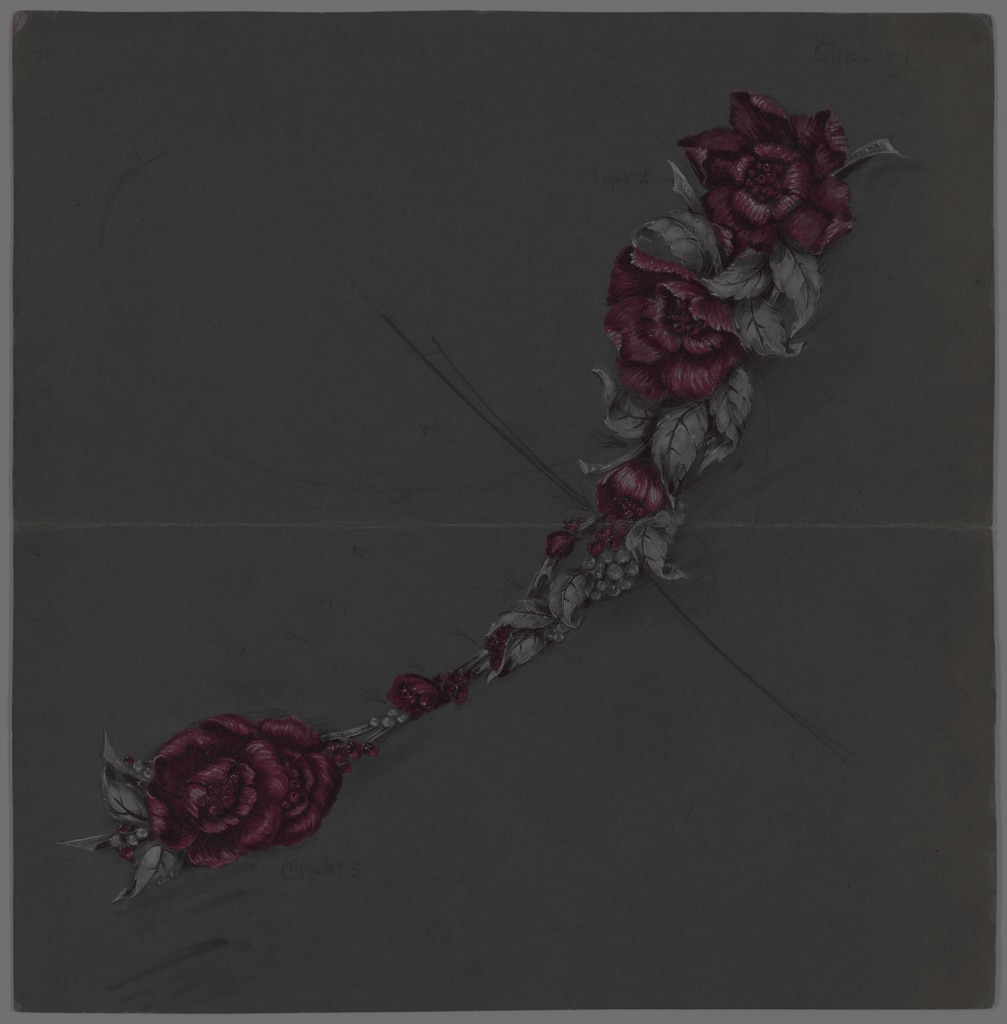
Coexistence of stylized and realistic representations
In 1939, however, the Maison produced an entirely different interpretation of this simple flower. This time, it was rendered in a more realistic fashion: the heightened stylization of the 1937 version had given way to a degree of suppleness. All of the umbels, stalks, and veins of the leaves are shown sharply and in detail, in yellow or green gold.
The heart of the flower is depicted with a single ruby, distinguishing it from the bud beside it. These two visions, separated by just two years, illustrate the cohabitation of two major currents during the 1930s: on the one hand, the search for pared-down stylization, and on the other, particular attention to faithfully reproducing nature.
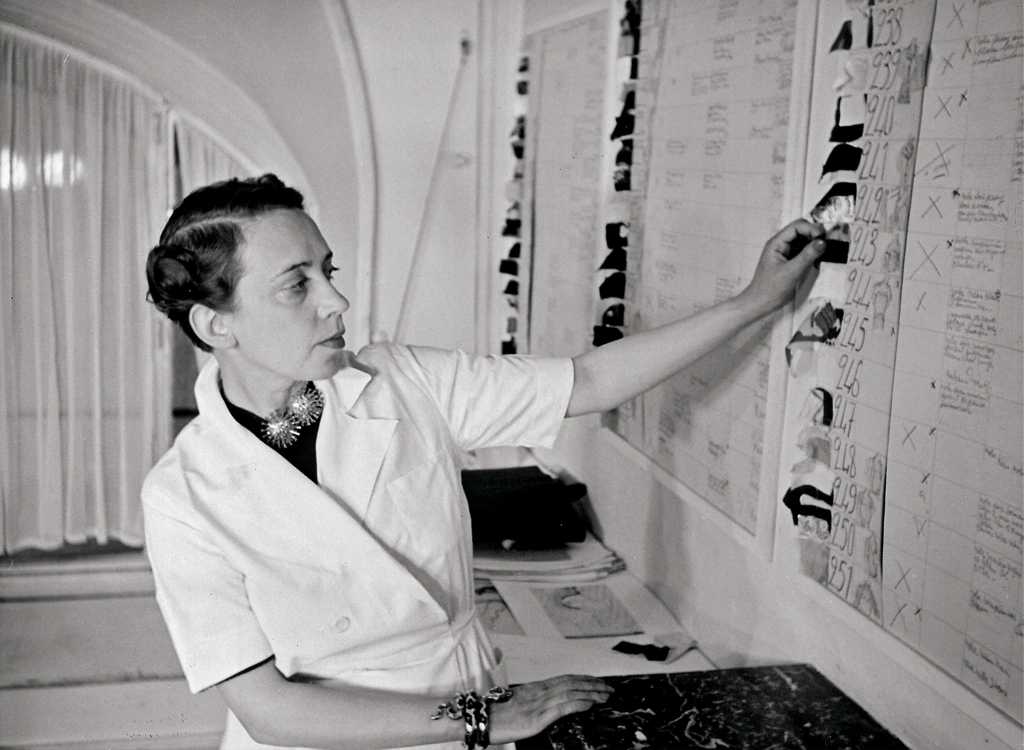
To go deeper
